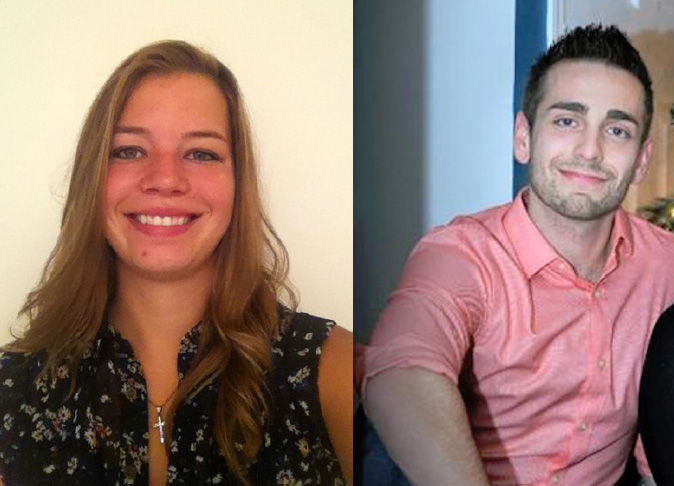
For Colleen Gibson, the email came at the perfect time.
The first-year MSc Physical Therapy student in the Faculty of Rehabilitation Medicine is a newlywed struggling with balancing the financial load of the graduate program, while continuing to maintain the high grades required by the program. Add to that her involvement in community volunteerism, and Gibson's plate is brimming.
"It's very exciting to receive the Indigenous Graduate Award," says the Métis student from Meadow Lake, Saskatchewan.
Gibson graduated with a kinesiology degree from the University of Alberta, which taught her not only the fundamental skills she needed to enter the graduate program, but also why applying for this new award, valued at up to $15,000 per student, is so important.
"These awards are important in promoting education," she says. "The financial strain of post-secondary education can be significant, and is more than just the cost of tuition and books."
"It's important to us in the Faculty of Rehabilitation Medicine and the Department of Physical Therapy that every person be given the opportunity to shine," says interim department chair Doug Gross. "Awards like this one highlight the unique attributes and qualities of our students, and we are extremely proud that two of our students were selected as some of the first to receive this important recognition."
Steven Hazlett, a second-year MSc Physical Therapy student and the other recipient of the Indigenous Graduate Award, agrees with Gibson's sentiment.
"I was able to work and went through my undergraduate program (at the University of Calgary) with no financial aid," says the award recipient,
"As a graduate student, access to awards like these helps alleviate the financial burden while allowing the student to maintain financial responsibility, which decreases stress."
The UAlberta physical therapy program, says Hazlett, allows for student loans for a portion of the program, but the fall placement is solely funded by the student, "which means you need to plan long term."
"Receiving this award allows me to focus on school and placements, rather than rent and food," he says. "It makes a huge difference."
The Indigenous Graduate Award by the Government of Alberta, running as a pilot program in 2015-2016, requires academic achievement, academic potential and involvement in Aboriginal communities, which both Hazlett, whose paternal grandmother is Mohawk, and Gibson, whose family origins are Cree, feel strongly about. Both are heavily involved in community participation, with a passion for supporting student athletes in multicultural settings.
"Until a few months ago, when I took some time off to concentrate on my wedding and school, I was a coach of a minor basketball team. The team I coached is multicultural, which speaks to the importance I find in recognizing diversity," says Gibson. "The volunteer work I have done in the community has been great about helping develop my kinesiology skills, as well as my people skills."
Hazlett, who played hockey as a youth, went back to his roots when looking for a way to give back. "When I moved to Edmonton I signed on as a volunteer trainer with a local Midget AA hockey team," he says. "I've been their trainer for the last three years, and I also volunteer with the Stollery Family Day Classic hockey tournament as well as community activities at a clinic in St. Albert."
For both students, winning the Indigenous Graduate Award will allow them to complete their programs while concentrating on what's most important to them: increasing their knowledge so that when they enter their fields, their education in the Faculty of Rehabilitation Medicine will carry them through their careers as rehabilitation professionals.